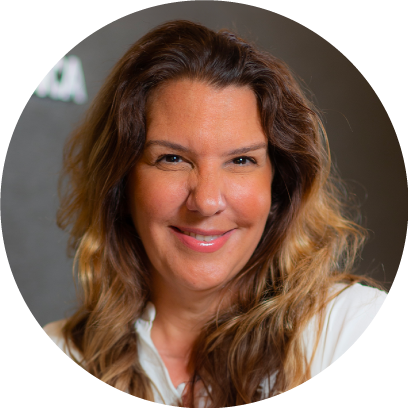-
TrendsDiversity, Equity & InclusionHealthcare
-
CountriesBrazilGlobal
Celebrating the strength, resilience, and representativeness of women is more than a necessity, it’s a mission. It’s essential to amplify the voice and visibility of women over 40, challenging entrenched stereotypes and fostering a culture of inclusion and equality. This mission becomes even more crucial in the face of challenges faced by women in this age group, such as issues related to menopause and climacteric, as well as the lack of equity and age discrimination in the corporate world and the lack of support from men in these situations.
Recently, during the #NobodyStopsMe event – promoted by the communication consultancy LLYC – experts, leaders, and enthusiasts gathered to precisely address these aspects. One of the issues discussed was the difficulty of diagnosing menopause and climacteric by healthcare professionals, given the wide range of symptoms that can arise, which can occur 5 to 10 years before even menstrual failure, totaling over 100 different manifestations. In addition to the well-known hot flashes, memory loss, insomnia, metabolic changes, unexplained weight gain, decreased libido, and fatigue can also occur, significantly impacting the routine of these women. However, it’s evident that both society and companies still lack readiness to discuss and provide adequate support to these women facing this scenario.
Linked to menopause and climacteric, which are challenges in themselves, are the difficulties faced by these women in the job market. Besides the need to prove oneself daily just for being a woman, as we age, this intensifies. Unfortunately, it’s not uncommon to find women who have already experienced ageism, for example. This is reflected in the fact that today we live in a scenario full of women who cannot re-enter the job market at 40 or 50 years old, and those who are employed consider themselves exceptions. Furthermore, regarding salary equity, if we start a salary convergence process today, it will take over 100 years to achieve it. And considering all these factors from a racial perspective, we realize that much needs to be done, especially regarding representation and diversity.
In this sense, men can play a fundamental role in advancing women in their careers by actively supporting them. This can be done through recognizing and promoting women’s contributions, as well as aiming to provide an inclusive and diverse work environment. Instead of competing, men should collaborate with their female colleagues, offering opportunities and support for professional development. It’s also important to be open and empathetic to listen to the daily experiences and difficulties of the professionals they interact with daily. Recognizing the value of women in the workplace not only strengthens teams but also contributes to a fairer and more egalitarian society.
We can draw an important lesson from this: there is a path to be walked and some steps to be followed. First and foremost, it’s essential to ensure the representation of women in the job markets, offering opportunities for them to occupy leadership positions and receive fair and equal remuneration. This will allow more women to have a voice and visibility to discuss these issues in their respective fields of work, in the press, and in society in general. For this, it’s necessary for everyone, especially men, to practice a more empathetic listening, free from prejudices and beliefs, in order to stimulate dialogue. Women need to be recognized and considered, while aging, and all the issues that may come with it, should be seen as something natural and not disabling. Our professional and life experience is undeniably more valuable than the number on our ID card.




